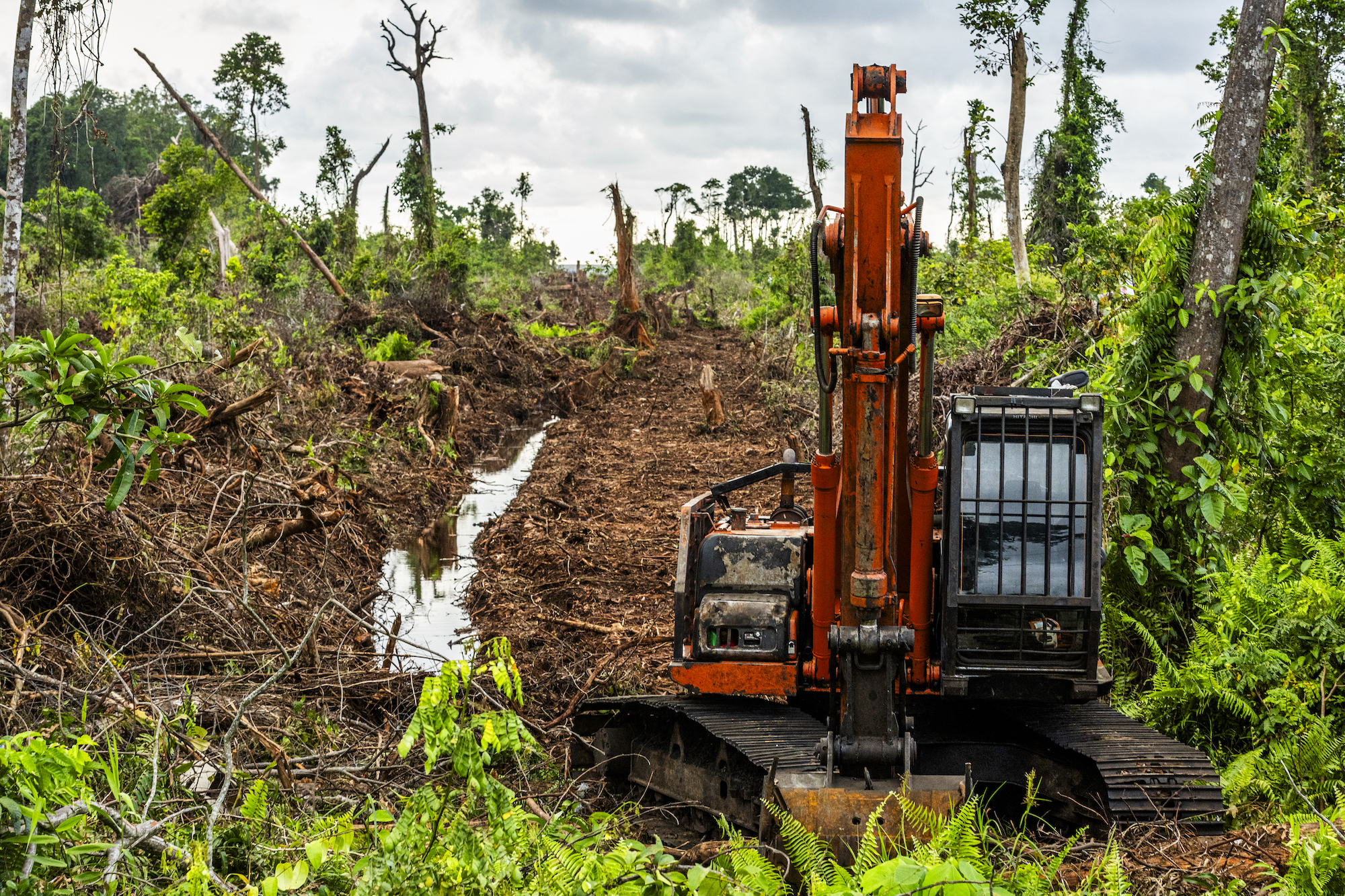Influential oil palm producers in Indonesia usually hide their involvement in deforestation using shadow companies, but they’ve found a new way to avoid scrutiny: by posing as small farmers.
Smallholders grow about 40% of Indonesia’s oil palm, but they’re not all the same. Some cultivate on customary croplands, are poor, and face many hurdles in Indonesia’s pro-corporate system. Others are local elites who run their plots like mini corporate plantations, complete with managers and heavy machinery.
The latter are largely responsible for increases in Indonesia’s smallholder-driven deforestation. They’re also why the orangutan capital of the world is disappearing, according to our latest investigation.
Using high-resolution satellite imagery, we spied on five pint-sized plantations run by local elites in Sumatra’s Rawa Singkil Wildlife Reserve, two of which are already supplying major global brands with illegal palm oil, including Chips Ahoy! and Head & Shoulders-makers Mondelēz and Procter & Gamble.
The “smallholder” label affords these rogue operators a level of sympathy that they don’t deserve. They’re not smallholders in the sense of family-run farms. Rather, they’re land speculators with large cumulative landholdings who abuse their influence to clear standing rainforests.
The oil palm lobby is ginning up sympathy for smallholders to sell the EU on blanket exemptions that could shield these and other small, rogue operators—a terrible development for the Singkil and its famous orange inhabitants, should it come to pass.













